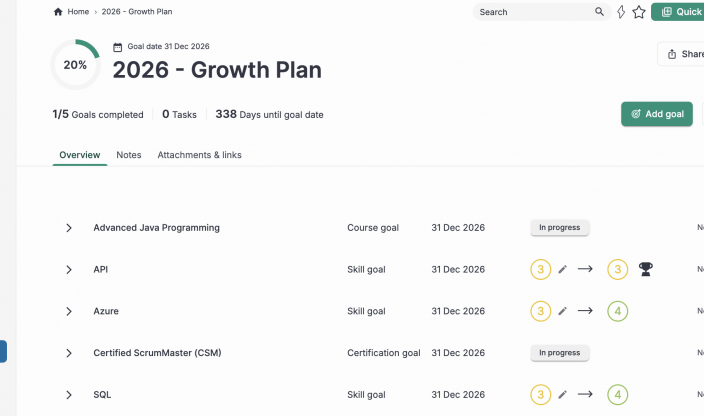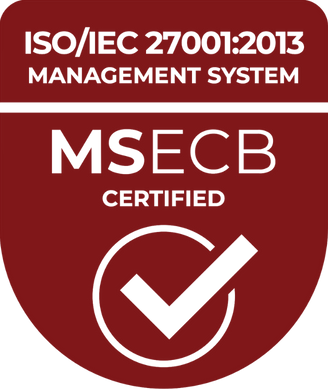Elements of a successful recruiting strategy

Guest blogger – Marika Skärvik, CEO and founder of PerformancePotential AB. Photografer: Denny Lorentzen.
Many people think they have mastered the fine art of recruiting. But recruitment is challenging. We want to be able to trust our gut feeling, and we hope that it will lead us the right way, but the gut feeling tends to be a bit biased. We base decisions on our own past experiences, good ones and bad ones, but people are dynamic which means that our hopes and beliefs end up not corresponding with reality.
With the help of various tests, we can increase the chances of finding the right candidates. The tests, however, do not ensure that talents will act as expected and predicted in certain scenarios. Also, the tests do not always include variables that can predict behavior and actions, instead, we’re left with information about a personality type. The question here is, can IQ, EQ, and a personality type, determine how a person will come to act?
The practical perspective
We have an idea of being able to translate a personality into predicted action. But what DOES an analytical person, an enterprising person, or a social and outgoing person actually DO? And HOW will their actions concretely contribute to the role and the result we demand?
My thought immediately goes to Petter Stordalen’s method of completely ignoring CVs. Instead, he lets those who apply audition for roles, which gives them a chance to show what they can do from a practical perspective. This might not be as easy in the consulting industry as there are many different disciplines, but why not try it out?
The important thing is not who you are, but what you do
Finding the right person for the right assignment requires time, something that most companies lack. Recruitments are therefore not always prioritised.
Of course, the role and assignment are important to have in mind when recruiting a consultant, but it’s just as crucial to reflect on how well they will come to work with your customers, managers, and colleagues. I do not know of any companies that let colleagues and managers do similar test to analyse compability. This makes the evaluation and selection one-sided.
Further, it is also important that talents are well informed about what’s expected of them. It is WHAT we do that matters – it’s the sole thing that creates results, and thus, more important than characteristics.
I highly recommend letting talents complete cases that descrive problems that they might run into on the job. Their answers and solutions give you a good indication of their problem solving capabilities, how they perceive certain issues, how they think, and how they act when faced with complex tasks.
I also recommend asking talents to describe the order in which they would prioritize the following bulletpoints:
- Give direction
- Motivate and convince.
- Create consensus.
- Collect facts.
Culture matching
Last but not least, we have the challenge of cultural matching. We at PerformancePotential conduct the annual PotentialBarometer ™ survey in order to collect facts about how companies work with cultural matching in connection with, for example, recruitment.
Some might even ask about the candidate’s values, but you can’t guarantee that the answer that you get is genuine. We know from experience that it can sometimes be difficult to be completely transparent during interviews due to stress and a perceived pressure to perform. Also, many are unaware of their true values and how they affect priorities and actions, which makes it an even more complex question to answer. The same goes for questions about how they act in certain situations. The answer can vary depending on self awareness, level of self confidence, and the interpretation of the answer can be very subjective.
Showing values with actions
The key to good recruitment is to reformulate your questions:
- How do you solve the following challenge?
- How do you choose to prioritize? Describe your usual workflow (priorities, pace and focus) before taking action on something?
- How do your values manifest in your everyday life?
Commitment is important but it is not enough. It’s what they do once they’re committedd that’s interesting. For more than ten years, we have developed and used a digital tool that shows and concretizes a person’s actions. How do different people choose to act in connection with problem-solving, implementation, and values?
There is no right or wrong answer or way. But the results can tell us a lot about how candidates will act on the job. To succeed in the recruiting process, you should know how to grow a staffing agency.
Greater accuracy than tests based on personalities
- Let talents complete a case and present a solution to the given problem. Also, let them take you through how they went about solving the problem.
- Avoid references – references sometimes have a biased and subjective perception of the person
- Digital tests – With a broad understanding of personalities, predicted behaviours and actions, the possibilities increase on several levels:
- Facilitates on-boarding.
- Indicates which customers are most suitable for the consultant.
- Provides an additional dimension when matching talents with managers and colleagues.
- Gives consultant the best conditions to develop
- Makes it easier to identify career paths
- Greater understanding of how a person will do on an assignment, compared to tests based on personalities and intellectual skills.
- Integrating a Recruiting CRM for talent acquisition can further enhance this process by streamlining candidate management, improving communication, and providing valuable insights into candidate interactions.
Our digital analysis – Work-Related DNA can help you understand your workflow, strengths and weaknesses, and which assignments you should say yes or no to as a consultant. Our users range from individuals that use it on a private basis, to large corporations that use it to find suitable talents.
A combination of objective analysis of how people choose to act provides greater accuracy than some of today’s theoretical models.
Feel free to try the analysis at the next recruitment. It provides a validated picture of how a person will act, what priorities and choices the person will make, and the preferences govern their decisions.
ArbetsrelateratDNA™ – an analysis that helps you understand the prerequisites for great results.
Do you want more tips on how to challenge the myth that personalities are a prerequisite for success? As a customer of Cinode, you can download my handbook for SEK 150.
Order here and enter ”Cinode”: info@performancepotential.se
Want to know more about Cinode?

Guest blogger - Marika Skärvik, CEO & Founder of PerformancePotential
Guest blogger - Marika Skärvik, CEO & Founder of PerformancePotential
You may also like...
All posts
Jan 29 2026 · Cinode, Cinode, Consulting, Konsult
Ready for 2026? How to build a development plan that closes your skills gap

Jan 21 2026 · Consulting
Softronic’s New CEO Mattias Flock: “I Love Creating Things — That’s Why Growth Excites Me”

Dec 18 2025 · Consulting
Santa’s Letter to the Consulting CEO

Dec 15 2025 · Consulting
Building a High-Performing Consulting Firm

Dec 01 2025 · Consulting
🏆Yellow Elk Sweeps All Three Awards at Konsultkollen 2025

Oct 10 2025 · Consulting, Entrepreneurship
🚀 The Head of Analysis: Seven Success Factors for Consulting Firms 2025–2030

Sep 10 2025 · Consulting
“It’s About Growing Right – Not Fastest” – Netlight Scales Up with Culture and AI in Focus

Aug 21 2025 · Cinode, Consulting
🚀 A Clear View and Fast Execution – Our Journey with Cinode

Apr 30 2025 · Consulting
Understanding the psychology behind pricing

Apr 15 2025 · Consulting
How to set (the right) price?

Mar 18 2025 · Consulting
How do we charge for the value of our services?

Mar 11 2025 · Consulting
